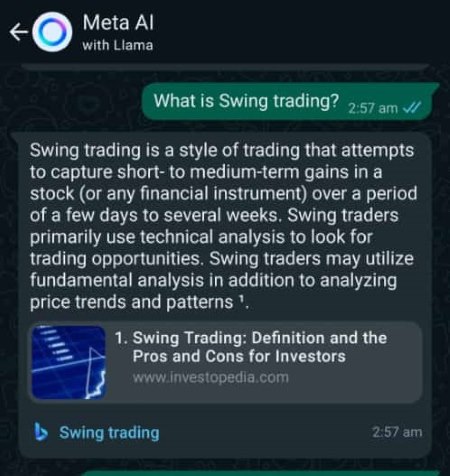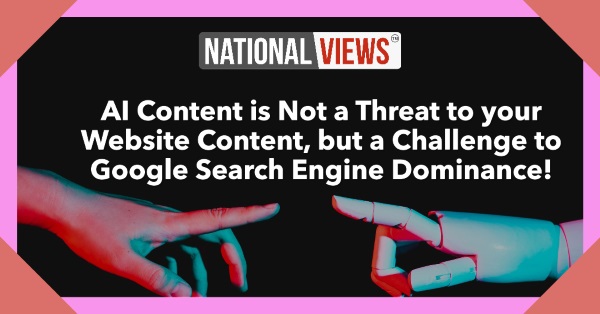AI content has taken everybody by storm. It has changed the content game on the Internet like never before. Type anything, and the ‘smarty’ conspires to give you the best result from the Internet Universe. So, here’s the question: If AI platforms are providing all the answers, why would anybody want to visit your website to consume information and read that content? This may make sense on some level, but if we dig deeper, we realize that AI is not a threat to your website content. On the contrary, AI needs your website content more than ever. And if anyone seems to be in trouble, it is the Google Search Engine and its dominance on the Internet!
AI Relies on Your Website Content to Produce AI Content, Just Like the Google Search Engine
It was November 2022 when AI’s master product ChatGPT by OpenAI made an entry into our lives. Initially, only professionals started using it, but with time and increased accessibility, ChatGPT became synonymous with content writing. However, the free version has limitations; it provides updates and details only up to a certain period (perhaps until September 2022!). This missing piece empowered several other AI platforms and apps to develop their own free versions that could provide audiences with breaking news and the latest updates, even if only hours old.
Meanwhile, Microsoft, through its search engine Bing, also started harnessing the power of AI (thanks to the Microsoft-OpenAI partnership that began in 2019), but with sources and references. Soon after, Microsoft launched Copilot on the Bing search engine, combining the power of ChatGPT to provide users with AI-generated content with proper citations and references. This was a pivotal moment where website owners and content creators realized that regardless of how many AI platforms emerge and take over, the existing and future content on their websites will continue to be valued and cited as sources and references.
Google Gemini was also announced a few days before Microsoft Copilot, but unfortunately, they did not integrate the AI tool into their search engine. While Microsoft Copilot added value to the Bing search engine, Google Gemini did not contribute to Google’s search engine at all.
Also Read: Interesting Facts you Need to Know about Google Gemini, a ChatGPT Competitor
The outcome? AI Is Not a Threat to Your Website Content, but It Is Surely a Challenge to Google Search Engine Dominance!
Bing’s AI integration has made the search engine a real competitor to Google. Bing has been growing in popularity since the launch of its AI chatbot. The battle of the search engines began. So, while your website content will be used to generate AI content and even be cited as a source and reference (generating views and traffic), with the growing popularity of AI, we are uncertain whether people will continue to rely on Google’s search engine as they did before.
This is the reason why Alphabet Inc.’s profits aren’t the same as before. Google’s advertising revenue is shrinking, and this is why your AdSense revenue is also dropping.
Enter Meta AI Llama
Meta AI Llama has been launched on WhatsApp, where you can easily ask questions and get answers and images for all your inquiries. This is the product of Meta’s partnership with Microsoft, which is why you see Bing mentioned in the results along with other sources when you receive a reply.

While Google continues to operate independently, the company’s competitors appear to be collaborating, expanding, and reaching new horizons. AI is undoubtedly a significant challenge to Google’s search engine dominance, but it certainly is not a threat to your website content if you continue to excel at what you do best.


